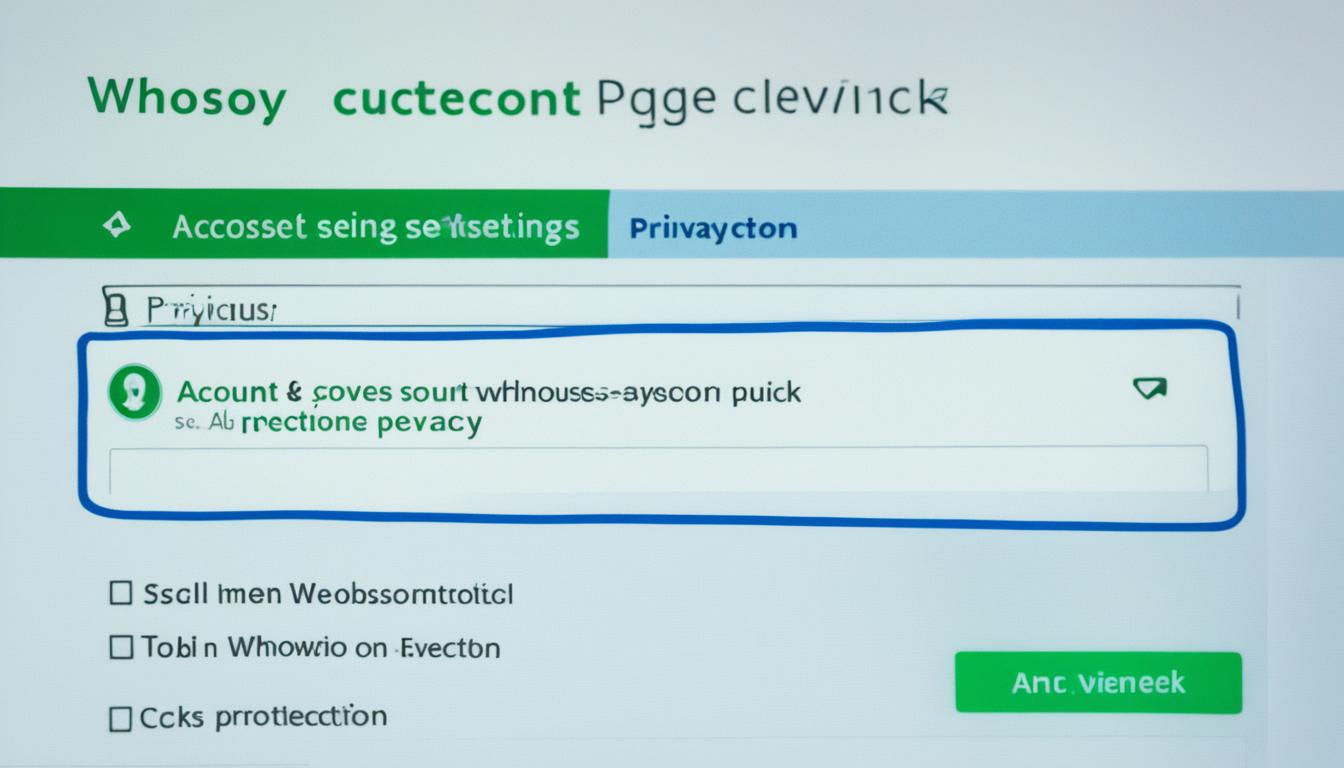Domain Name Search & Registration
Did you know that there are over 370 million domain names registered worldwide? That’s right, millions of businesses, individuals, and organizations have realized the importance of having their own unique online identity.
When it comes to establishing your online presence, one of the first steps is to find and register a domain name that represents your brand or business. Luckily, the process of domain name search and registration has become simpler and more convenient than ever before.
With the help of domain search tools and trusted registrars like GoDaddy, you can easily check the availability of domain names, purchase them online, and start building your online empire.
So, whether you’re a small business owner, a blogger, or an entrepreneur, it’s time to unlock the power of online presence through domain name search and registration. Let’s dive in and discover everything you need to know to get started.
Key Takeaways:
- There are over 370 million registered domain names worldwide.
- Domain name search and registration is an essential step in establishing your online presence.
- Domain search tools and registrars like GoDaddy make the process easy and convenient.
- By registering a domain name, you gain a unique online identity for your brand or business.
- Stay tuned to learn more about choosing the right domain name and checking its availability.
How to Choose the Right Domain Name for Your Business
Choosing the right domain name for your business is crucial for establishing your online presence. A domain name is like your website’s address, and it’s important to select one that is distinctive, identifiable, and intuitive for your target audience.
Consider using your business name in your domain to maintain consistency and brand recognition. If your preferred domain is already taken, you can opt for a descriptive alternative that explains what your business does. Incorporate keywords that people might search for to find your business, but avoid overusing them.
It’s also important to consider your target audience and whether you’re targeting a Canadian or international market. If you’re doing business in Canada, registering a .CA domain is preferred by Canadian shoppers.
Finally, for added security and protection, consider registering your domain in multiple extensions, such as .CA and .COM, and utilize domain privacy and security features.
| Domain Name | Business Name | Domain Extension | Domain Search | Domain Availability | Domain Registrar |
|---|---|---|---|---|---|
| example1.com | My Business | .com | GoDaddy | Available | GoDaddy |
| example2.ca | My Business | .ca | GoDaddy | Taken | GoDaddy |
| example3.net | Your Business | .net | GoDaddy | Available | GoDaddy |
When choosing your domain name, keep in mind that it should align with your business goals and target audience. By selecting a domain name that reflects your brand, incorporates relevant keywords, and considers your target market, you can establish a strong online presence that helps drive traffic and boost customer engagement.
How to Search for and Check the Availability of a Domain Name
When it comes to finding the perfect domain name for your website, it’s important to check its availability before making a decision. Fortunately, there are several tools and resources available to make the process easy and efficient.
One of the most common methods to search for a domain name is by using a domain search tool. Websites such as GoDaddy offer a user-friendly search feature where you can enter your desired domain name and extension. The tool will quickly check the availability of the domain and display the results.
If the domain you want is already registered by someone else, don’t worry. You can use a WHOIS lookup tool to find information about the current domain owner. This tool will provide you with contact details, allowing you to reach out and negotiate acquiring the domain if it’s available for sale.
In some cases, you may prefer to have a professional handle the negotiation process for you. This is where a domain broker can be helpful. A domain broker has experience in acquiring domains and can negotiate on your behalf. They have connections within the industry and can navigate the complexities of domain ownership transfer to secure your desired domain.
For domains that are not currently available, you have the option to use a domain backorder service. This service allows you to place a backorder credit on the domain, giving you a chance to acquire it if it becomes available for registration or goes up for auction in the future.
By utilizing these tools and services, you can efficiently search for and check the availability of a domain name, increasing your chances of securing the perfect web address for your online presence.
| Domain Search Tools and Resources |
|---|
| GoDaddy Domain Search Tool |
| WHOIS Lookup Tool |
| Domain Broker Services |
| Domain Backorder Services |
What is Domain Name Registration and How to Buy Domain Names
Domain name registration is a crucial step in establishing your online presence. It involves finding a web address or domain name and signing up to use it. When you register a domain name, you obtain the rights to use it as long as you continue to pay the annual registration fee.
When you register a domain name, you technically don’t own it, but you have the rights to use it exclusively. Think of it as leasing a piece of online real estate. The registration fee helps cover the maintenance of the domain and DNS services, ensuring your website remains accessible.
If you fail to renew your domain registration, the domain becomes available for someone else to register. To prevent accidental expiration and the loss of your domain, most domain registrars, like GoDaddy, offer an auto-renew option for all customers. This feature automatically renews your domain registration before it expires, providing continuous ownership and protection.
Additionally, you can opt for domain protection services to safeguard your domain. One such service is the Ultimate Domain Protection offered by GoDaddy. With this service, you can extend the protection of your domain for an additional 90 days after its expiration date, giving you ample time to retain ownership and prevent unauthorized use.
Buying domain names is a straightforward process. You can register a domain with a domain registrar, such as GoDaddy, which offers a user-friendly interface to search for and purchase your desired domain. Simply enter your preferred domain name, browse the available domain extensions, select the one that best represents your brand or business, and proceed to the checkout.
Once you’ve purchased your domain, it’s important to keep your registration details up to date. This includes providing accurate contact information, like your email and phone number, which allows the domain registrar to communicate with you regarding your domain. It’s also advisable to enable domain privacy features to protect your personal information from being publicly accessible via the WHOIS database.
Domain Ownership
When you register a domain name, you become the legal registrant or owner of the domain. This ownership grants you the exclusive right to use the domain for your website and online activities. However, it’s essential to note that domain ownership is not permanent. It is subject to continued registration and payment of the renewal fees.
The domain registrar acts as a facilitator, providing the necessary infrastructure and services to maintain and manage the domain. It’s crucial to choose a reputable domain registrar that offers reliable customer support and industry-standard security features to protect your domain and ensure smooth management.
IP Address and Web Address
An IP (Internet Protocol) address is a unique numerical identifier assigned to each device connected to the internet. It serves as the digital address that enables devices to communicate with each other on the internet. Think of it as the “phone number” for your device in the online world.
A web address, also known as a URL (Uniform Resource Locator), is the human-readable version of an IP address. It provides a more user-friendly way to access websites and web pages. When you type a web address into your browser’s address bar, the browser converts it into the corresponding IP address to establish a connection and load the requested website.
For example, a web address like “www.example.com” is easier for users to remember and type than its corresponding IP address, such as “198.51.100.0”.

| Key Points | Benefits |
|---|---|
| Domain registration is the process of signing up to use a web address. | – Establishes your online presence – Provides a unique identity for your website – Secure exclusive rights to use the domain – Enables professional email addresses |
| Annual registration fees cover the maintenance of the domain and DNS services. | – Ensures technical support and domain management – Enables consistent accessibility of your website – Supports reliable email delivery |
| Auto-renew option helps prevent accidental domain expiration. | – Avoids disruption of website and email services – Safeguards domain ownership and brand identity |
| Domain protection services offer extended protection after expiration. | – Provides a grace period to retain ownership – Prevents unauthorized registration or use of the domain |
| Choose a trusted domain registrar for reliable domain management. | – Access to comprehensive domain management tools – Expert customer support for technical assistance – Enhances security and privacy features |
Different Types of Domain Extensions and Their Uses
When it comes to choosing a domain extension, it’s important to understand the different types and their specific purposes. Domain extensions, also known as top-level domains (TLDs), play a significant role in website communication and can help convey the purpose of your website to users. Let’s explore the various types of domain extensions and their specific uses:
Generic Top-Level Domains (gTLDs)
Generic top-level domains such as .com, .org, .net, and .info have a wide range of applicability and are commonly used for various types of websites. These extensions do not have any specific restrictions and are suitable for both personal and professional websites.
Country Code Top-Level Domains (ccTLDs)
Country code top-level domains, also known as ccTLDs, are reserved for specific countries or territories. These domain extensions indicate the region and language displayed on the website. For example, .ca is the ccTLD for Canada, .uk for the United Kingdom, and .jp for Japan. Using a ccTLD can help your website target a specific country or region and establish a stronger local presence.
Other Domain Extensions
In addition to gTLDs and ccTLDs, there are other domain extensions that cater to specific industries or niches. For example, .edu is primarily used by educational institutions, .gov is reserved for government organizations, and .org is commonly associated with non-profit organizations. These domain extensions can help communicate the purpose of your website and make it more memorable to your target audience.
When choosing a domain extension, consider its relevance to your business, brand, and online goals. Certain extensions may have registration restrictions or specific use requirements, so it’s important to review the guidelines provided by the domain registrar. By selecting the right domain extension, you can enhance your website’s visibility, credibility, and relevance in the online landscape.
Image:

| Domain Extension | Purpose |
|---|---|
| .com | General use for commercial websites |
| .org | Commonly used by non-profit organizations |
| .net | Traditionally used by network-related websites |
| .info | Provides information on a specific subject |
| .ca | Country code top-level domain for Canada |
| .edu | Used by educational institutions |
| .gov | Reserved for government organizations |
The Cost of Domain Names and Factors to Consider
When it comes to registering a domain name, the cost can vary based on several factors that you should consider. One important factor is the type of domain extension you choose. Some domain extensions are more affordable than others, so it’s essential to evaluate your budget and the purpose of your website before making a decision.
Another factor that can impact the cost of a domain name is whether it is considered a premium domain. Premium domains are high-quality domains that are often more expensive than standard domains due to their perceived value and market demand. These premium domains are designated by the domain industry based on their appeal and potential for branding and marketing.
In some cases, the availability of a domain name can also affect its price. If the domain name you desire is already taken, you may need to negotiate with the current owner to acquire it. This negotiation process can influence the overall cost of acquiring the domain.
When assessing the cost of a domain name, it’s important to consider the total cost of ownership. This includes not only the initial purchase price but also the annual renewal fees and any additional services or features that you may require. These additional services can include domain privacy, SSL certificates, or email services, among others.
To ensure a fair valuation and negotiation of the domain’s price, it can be beneficial to enlist the help of a domain broker. A domain broker is an expert in the domain industry who can assist you in acquiring your desired domain at a reasonable price, considering market trends and industry standards.
What to Do With Your Domain Name
Now that you have your own domain name, it’s time to harness its power and make the most out of your online presence. There are several strategies you can implement to utilize your domain effectively and drive direct traffic to your website.
Direct Traffic: One way to optimize your domain is by directing traffic from it to your social media feeds. By including your domain name in your social media profiles, you can encourage visitors to explore your website and learn more about your business. Additionally, creating a landing page for promotional campaigns can help attract potential customers and increase conversion rates.
Business Email: Another valuable use of your domain name is to create a professional business email address. Using “[email protected]” instead of a generic email domain adds credibility and professionalism to your communication, helping to build trust with your clients or customers.
Domain Features and Services: Take advantage of the various features and services offered by domain registrars, such as GoDaddy. For instance, GoDaddy provides LiteSite, a convenient 1-page website option that allows you to quickly establish an online presence. Additionally, features like email forwarding enable you to receive emails sent to your domain in your personal email inbox. Domain parking is another service offered by registrars, allowing you to reserve a domain for future use without building a website right away. Lastly, registrars often offer two-factor account verification to enhance the security of your domain.
With these strategies and tools at your disposal, you can fully leverage your domain name to enhance your online visibility, communicate professionally, and take advantage of valuable domain features and services.
FAQ
Can I check the availability of a domain name before registering it?
How do I choose the right domain name for my business?
How can I search for and check the availability of a domain name?
What is domain name registration and how do I buy domain names?
What are the different types of domain extensions and their uses?
How much do domain names cost and what factors should I consider?
What can I do with my domain name?
- Shop for Server & Workstation Systems & more - February 25, 2025
- IP Geolocation API and IP Location Lookup Tools - February 24, 2025
- What is GoDaddy? Everything You Need to Know in 2024 - February 23, 2025





















Post Comment
You must be logged in to post a comment.